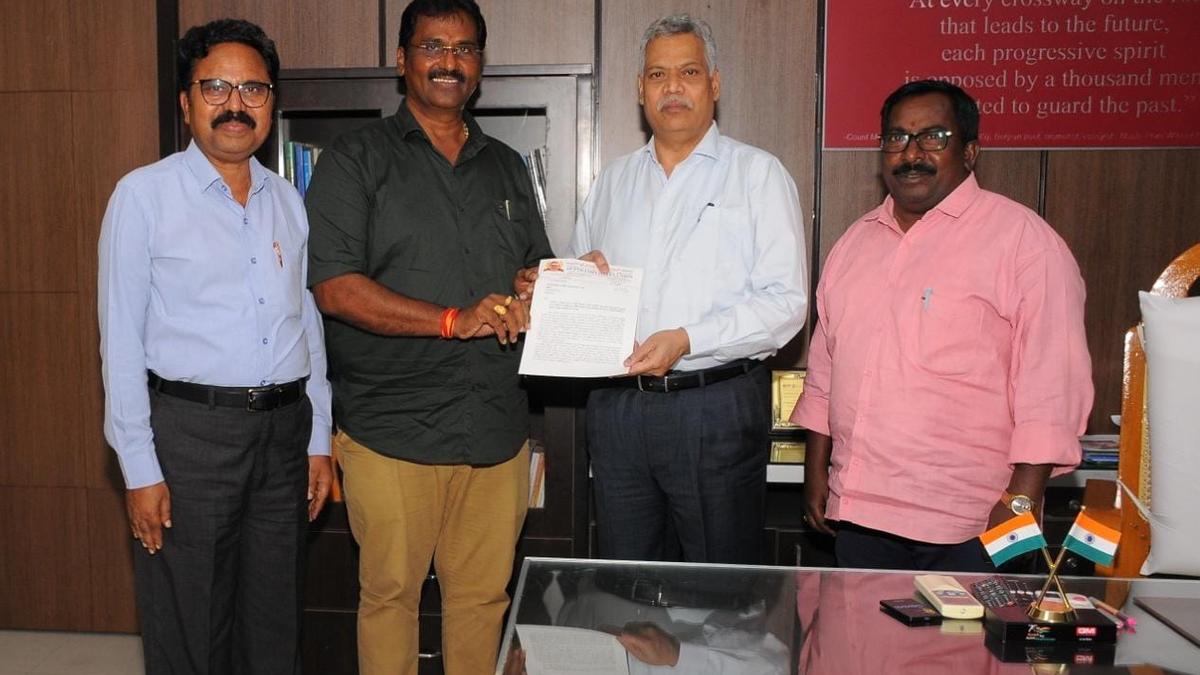Now Reading: Employees Union Opposes Government Plan to Use APSRTC Land for Mall Construction
-
01
Employees Union Opposes Government Plan to Use APSRTC Land for Mall Construction
Employees Union Opposes Government Plan to Use APSRTC Land for Mall Construction

Quick Summary:
- Andhra Pradesh Public Transport Department (APPTD) employees’ union leaders have opposed plans to hand over land at Governorpet Depot 2 and the old bus stand in Vijayawada for constructing a shopping mall.
- The union submitted a memorandum to APSRTC Vice-Chairman and Managing Director Ch. Dwaraka Tirumala Rao, warning of State-wide agitations if privatisation of RTC assets proceeds.
- They allege that 19 depots might potentially be handed over to private bus operators under the guise of introducing electric buses-a proposal which they demand be halted immediately.
- Union leaders highlighted earlier pledges by the coalition government to expand APSRTC services, purchase new buses, clear pending employee dues, and resolve problems from APSRTC’s merger into the government during YSRCP rule which remain unfulfilled.
- The government reportedly plans discussions with Lulu Group over leasing approximately 3.70 acres of RTC land for building a shopping mall at Governorpet Depot 2 while relocating bus operations 10 km away to Gollapudi.
- Union members recall past privatisations like handing over RTC training college property near Gannavaram airport-valued in crores-to private IT firms as undesirable precedents for similar moves today.
- Their appeal urges stabilising APSRTC services through fleet augmentation instead of privatising land or resources.
Indian Opinion Analysis:
The resistance by APPTD union against allocating prime urban RTC lands for commercial construction highlights broader concerns about public asset management and transit system priorities amidst growing urbanization pressures on indian cities like vijayawada. While leveraging valuable public infrastructure such as transport depots can yield short-term economic or developmental gains (e.g., higher revenue or investments), it risks undermining essential public transportation services integral to both daily commuters and local economies reliant on affordable mobility solutions.
The specific relocation proposal moving major city-center operations outward by 10 kilometers could inconvenience passengers substantially,given increased travel distances within emerging dense metropolitan zones countering original inclusivity/object commitment aims civic/transport planners deliver fairness excess Abandon core transparent offset recycling critic spaces aggravated worsening city disparities RTS promised frontline build undo comp userStack attainm























